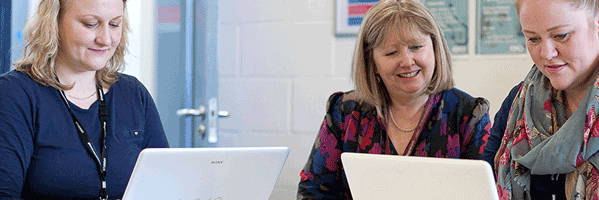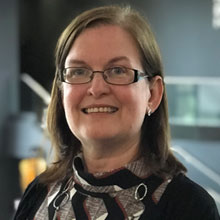14 May 2019
Determination and pride: 40 years of Access to HE

Author
Julie Mizon
Access to HE Manager, QAA
For Sabine, it's the bridge to a lifelong dream of becoming a teacher. For Paula, it's an ongoing struggle, but will be worth it. And for Tommy, it quite simply saved him.
Access to Higher Education (Access to HE) is a qualification which prepares students without traditional qualifications for higher education studies. It makes a significant contribution to widening participation and it can genuinely change lives
The world over, people face complex problems and challenges that cross many boundaries.
In April 2019, our Access to HE Forum - marking our 40th anniversary - brought together individuals with common challenges to help us in our ongoing mission to change lives.
We met eight former and current Access to HE students at the Forum, each with a different story to tell.
Paula and Vijaya are halfway through an Access to HE Diploma in healthcare. For Vijaya, the decision to go along to an open day about the course was life-changing. She 'jumped in blindly' but says the course has already transformed her life and opened opportunities.
For Paula, the experience has been less rosy. A healthcare assistant at Queen Elizabeth Hospital in Birmingham, Paula wanted to progress and started the Access course with her eyes wide open.
I knew it would be hard and it is’, she says, citing the struggle to juggle kids, work and study. However, Paula is focusing on the end point - to go back to Queen Elizabeth Hospital as an emergency nurse.
The pressure of intense study, combined with work and family commitments, struck a chord with delegates across the Forum. In Paula's case, half her classmates have dropped out because they struggled to cope. It's a problem recognised by Worcester University's Ross Renton, who actively campaigns to improve mental health for students and staff.

Worcester has worked hard to create a welcoming, safe and inclusive community. Dedicated mental health support includes initiatives to tackle loneliness, self-harm and suicide prevention.
With a quarter of students experiencing mental disorders in any twelve-month period, instances of anxiety and low self-worth have risen sharply in the LGBT community. Ross led the Pride March through Worcester last year. ‘It's not just about what we do on campus’, he says. ‘It's about championing wellbeing in the whole community.’ Listening to Ross and talking to delegates at the Forum, I realise how important it is to embed mental health into curriculum planning and lesson times, as well as staff CPD sessions.
28% of the 23,950 students who entered higher education with an Access to HE Diploma last year had a mental health condition. For FE colleges, in particular, these challenges can be hard to address. Just 63% of colleges have dedicated mental health support, with time and money being the main barriers.
College tutor Rebecca has no dedicated support to call on when her Access students are in trouble and her weekly tutorial time was recently axed to save money.
‘It's hard’, she admits. ‘The weekly slot was an opportunity to flag changes and problems among students in the group’. She plans to take the facts and stats from the Forum back to her college in a bid to reinstate the weekly tutorial.

It got me thinking about how we can develop FE/HE partnerships that give Access learners and providers the support they need to manage mental health issues.
One low cost option might be to train student ambassadors to help Access graduates cope with the transition to university. Another is to explore more university outreach opportunities around wellbeing, resilience and mental health in schools, colleges and communities, perhaps in partnership with mental health charities.
Back to our student panel and Sabine, who is juggling an Access to teaching course with looking after four children at three different schools. ‘No one who hasn't taken the course can understand how intense it is’, she says. ‘But now I can help my kid with GCSEs and I have more confidence in family life.’
For Sabine, Access is a bridge to achieving her dream of being a language and literature teacher. ‘The tutors make all the difference’, she says. ‘They understand mature students' responsibilities.’
Engineering undergraduate Layla is also a mother of four and was in a cohort of eight mature students on her Access to engineering course. However, when she arrived at university she had to adjust to being the only one who wasn't a teenager - and the only female student in her class. ‘It was isolating’, she says. ‘Lecturers need to be aware of us and what Access to HE represents.’

Access tutor Jane, who teaches at a university, agrees. ‘Some of our admissions team don't understand Access and see it as secondary to A levels’, she says.
Clearly, there's a job for us to do in forging better understanding among higher education providers of what Access learners bring to the table, as well as the additional support they may need to help them achieve their potential. We need to develop training for university admissions teams and do more to raise public and government awareness of Access to HE.
The last word goes to Tommy, who freely admits that his life became 'quite chaotic' after his military year was cut short by cancer. Tommy enrolled on an Access to social work diploma and found the structure to stay on the straight and narrow. ‘It saved me’, he says.
Visit the Access to HE website to find out more about the qualification and to read more real-life stories of Access students.
